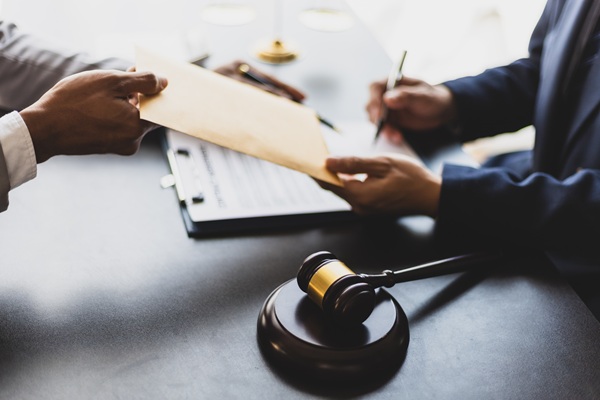Top Questions To Ask Your Traffic Offense Lawyer

Asking the right questions is knowing half of the answers, and a traffic offense lawyer is the person to ask if accused of any such offense in Missouri. In the U.S., traffic laws can be different from one state to another. So, asking your Missouri lawyer the right questions is critical in understanding your legal rights in a traffic offense case.
What to ask a Missouri lawyer about your traffic offense
It is only natural to have a million questions after being ticketed or charged with a traffic offense. Here are the top three to ask a traffic offense lawyer:
Is it a criminal offense?
Traffic laws vary greatly by state. A minor infraction on one side of the state line may be a more serious one on the other. If a person has been arrested, it is likely that the gravity of the situation is already clear. However, it is imperative to ask early on exactly how much trouble one might be in. Police commonly lay the strongest charges they believe can be proved. It is the job of the traffic offense lawyer to argue these charges down to the minimum.
What are felony offenses in Missouri?
The penalties for a felony traffic offense far exceed those of minor infractions. Be aware of the differences in traffic laws between states. Here are some common felony offenses in Missouri:
- Driving while intoxicated (DWI), such as while under the influence of alcohol
- Leaving the scene of a traffic accident involving injury or death (hit and run)
- Vehicular manslaughter, meaning a vehicular collision resulted in a death
- Repeat offenses of driving with a suspended or revoked license
- Fleeing from law enforcement in a motor vehicle if risking bodily injury to another person
Using a vehicle in the course of other offenses may elevate charges to a felonious level. Speeding away from a routine traffic stop could, for instance, elevate a simple ticket and fine to an arrestable felony if someone is injured or killed, regardless of the initial cause.
What are my options moving forward?
The criminal justice system can be difficult to navigate. Fortunately, a traffic offense lawyer can help. They can work to arrange bail so the client does not have to wait in jail for a trial date. As mentioned, a lawyer also negotiates the charges. Without this help, the charges are likely to be more severe.
A major feature of U.S. law in all states is the plea bargain. In most cases, the defense lawyer negotiates the charges down to something their client is willing to admit. In the case of driving and traffic offenses, this means reducing the penalties to a monetary fine. In some cases, if the charges are already minor and the evidence uncertain, a traffic offense lawyer may be able to get them dropped entirely.
Call a traffic offense lawyer today
Having a Missouri lawyer represent you in a traffic offense case may save you from having to pay expensive fines. For more severe cases, it may mean the difference between walking free and serving jail time. Contact our Springfield traffic offense lawyer today.
For more information or to schedule a consultation with us, call our Springfield office at (417) 865-2181. Call Dean Price Law today. NOTE: This is for informational purposes only and does not constitute legal advice.
Check out what others are saying about our services on Yelp: Traffic Offense Lawyer in Springfield, MO.
Recent Posts
It is sometimes possible to challenge trial outcomes in Missouri by filing an appeal. However, appeals are handled differently from initial trials, as they focus on identifying and correcting legal errors rather than re-examining facts. A criminal appeals attorney provides essential support by identifying valid grounds for appeal, adhering to strict timelines, and advocating for…
A drug possession lawyer can provide essential protection for clients facing their first offense. Not only do these Missouri lawyers fight to protect constitutional rights, but they also work to ensure that opportunities for second chances remain accessible. With the support of an attorney, those facing charges can navigate the legal system with confidence, pursue…
A DUI defense attorney can provide legal guidance and representation following a charge for impaired driving. This charge is officially referred to as driving while intoxicated (DWI) in Missouri, although it is more commonly known as driving under the influence (DUI). Regardless of what you call it, early action and preparation play a major role…
A traffic offense lawyer provides strong legal support to help protect both your rights and driving record. These Missouri lawyers help clarify options and create a sense of direction from the very beginning, fighting against points, fines, and license restrictions. That is why hiring legal counsel results in a smoother, more favorable experience overall —…


